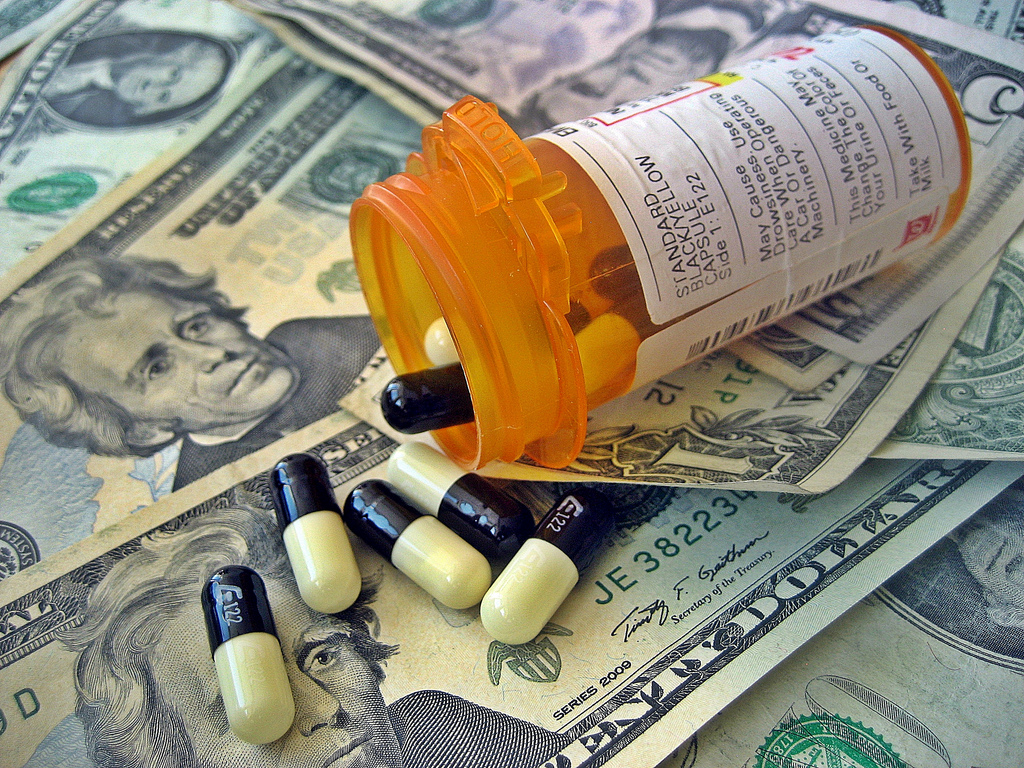AARP Hearing Center

Under attack since its inception in 2008, the state’s Rx Gift Ban law, which restricts drug company marketing practices, is once again at risk. House Bill 1507 , An Act to Improving Health Care Quality and Cost in the Medical Device Industry, is currently making its way through the state legislature.
AARP Massachusetts has urged legislative leaders to protect the Rx Gift Ban law and not pass this bill, saying “ Massachusetts consumers cannot afford for the Commonwealth to take a step backwards in addressing the high cost of health care.” Five other related bills are also in the works.
Last year, as part of the Fiscal Year 2012 state budget debate , AARP successfully fought efforts to repeal the Rx Gift Ban law. AARP also opposed Senate Bill 1849 , An Act Relative to Restaurant Rejuvenation, which would have seriously weakened the law.
AARP strongly supports the Rx Gift Ban law as one way to help drive down spiraling prescription drug costs – and is fighting to protect consumers. Today, an undisclosed portion of the pharmaceutical industry’s budget goes towards drug marketing to physicians, which can influence brand selection and prescription rates.
A recent survey in the New England Journal of Medicine found that 94 percent of physicians have received gifts or payments from the industry. AARP believes: We must protect the Rx Gift Ban law because voluntary industry codes have proved insufficient in curbing these trends – the costs of which are passed on to consumers.
What does the law say?
The Rx Gift Ban law covers health care practitioners, pharmaceutical or other medical device manufacturer agents, companies and marketers. It prohibits them from conducting certain marketing practices , including payments for prescribers’ meals that are:
- Part of an entertainment or recreational event
- Offered without an informational presentation
- Are outside the office or hospital setting
- Provided to spouses or guests
Drug and medical device companies must disclose information about meals, gifts or perks given to a prescriber, in excess of $50, to the Department of Public Health by July 1 each year.
What’s at stake?
The pharmaceutical industry spends more on marketing than any other entity. Marketing expenditure accounted for 18.2 percent of the sales dollar and is growing compared to research and development, which has slowed to 17 percent. More facts to consider:
Prescription drug spending is the fastest growing medical expenditure for consumers. The average growth is 6.3 percent per year, outpacing hospital services (6.1%) and physician and clinical services (5.4%).
On average, the pharmaceutical and medical device industries spend over $20,000 per doctor each year on marketing efforts.
As of March 18, 2011, there were more than 13,000 individual entries in the Department of Public Health’s public database of payments made to prescribers by drug and medical device companies.
Has the law negatively affected Bay State businesses, workers?
Many who oppose the law claim that the Massachusetts economy was negatively impacted by the restrictions. The facts prove otherwise.
Biotechnology Industry – Venture Capitalist investment in Massachusetts-based companies in 2010 was up 26 percent over 2009 to $246 million on a trailing four-quarter average basis, outpacing and eclipsing Silicon Valley as the most active target for bio-focused venture capital in the nation.
Conventions - Pharmaceutical and medical industry events generated $166.55 million in revenue for Massachusetts in 2009: the most by any industry in 2009 and totaled more than the commercial, technology and education industries combined.
Employment – The number of jobs in the Massachusetts biotechnology and pharmaceutical industry reached an all-time high in 2009 at 46,553, which marks a 60 percent growth since 2000.
Restaurants – Revenues are up , trends point to growth, and the recent industry slowdown was a national trend caused by the economic downturn.
What about consumers?
Bottom line: Prescription drugs can help keep people healthy, and out of more expensive care. But here in the Bay State, residents age 50 plus continue to be affected by prescription drug sticker shock , with the majority reporting major problems paying for their medication, according to a 2011 AARP survey.
A recent AARP Rx Price Watch Report found that prices for drugs facing generic competition in 2010 climbed by an average of 13.7 percent in 2009, compared to 8.3 percent for all drugs studied. And, brand name Rx prices continue to increase after the introduction of generic competition, indicating that consumers who choose to continue taking a brand name product are not likely to experience any price relief once a generic is available.
Where does the Rx Gift Ban law stand now?
Stay up to date on the latest developments at the State House. Check our daily blog , where we post breaking news and up to the minute information about the Rx Gift Ban law, and other issues important to our Bay State members and their families. You can also visit the AARP MA Facebook page , and follow us on Twitter .
Photo Courtesy of Images_of_Money/Flickr































































